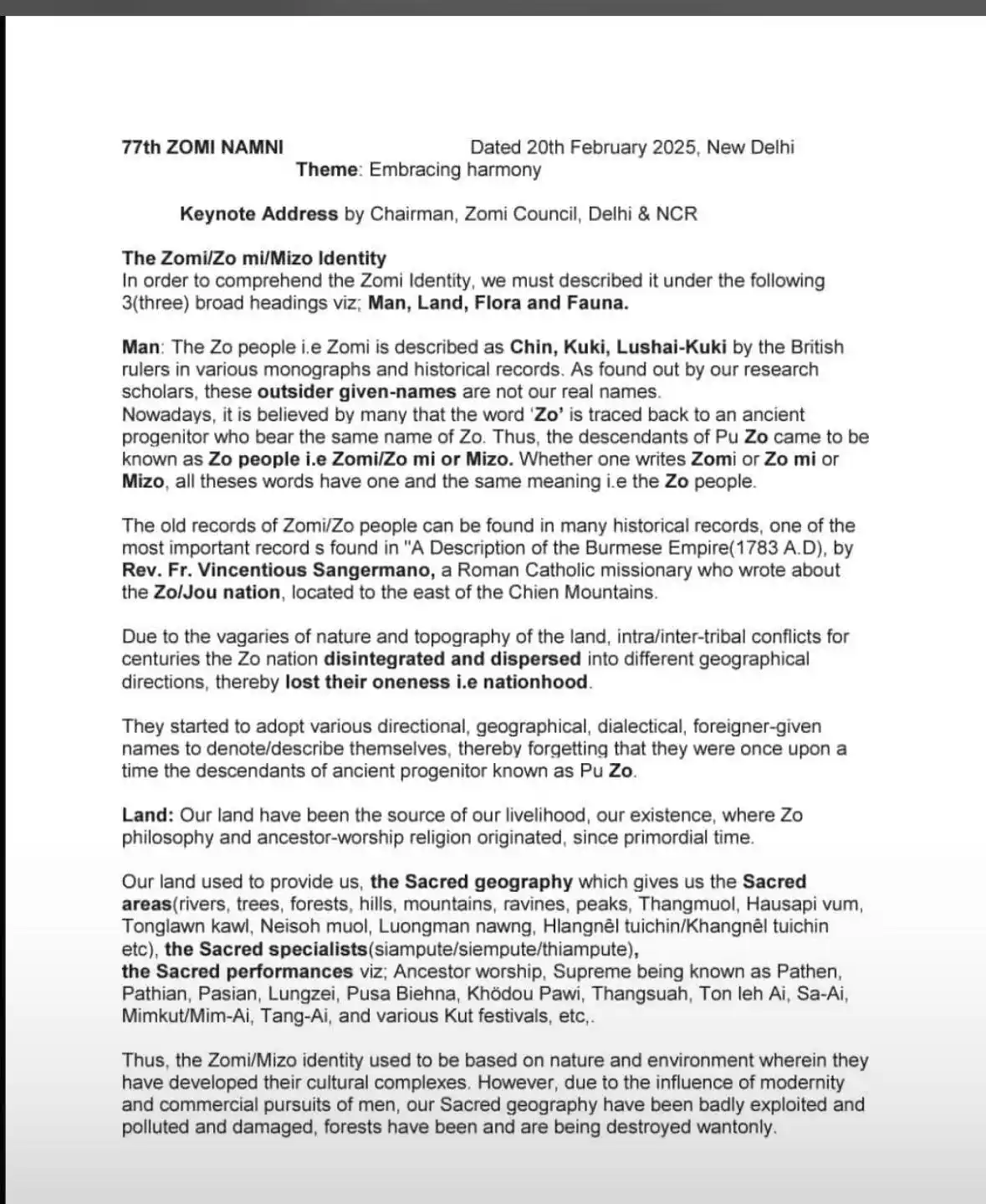Young Kuki
February 21, 2025 at 03:47 AM
Delhi a Unaote “Zomi” Namni keynote address framing “Zomi” as a singular identity relies heavily on a limited set of colonial and missionary sources, which can lead to an oversimplification of the region’s complex ethnic tapestry. While it is valid to critique British labels such as “Chin,” “Kuki,” and “Lushai” for imposing external classifications, presenting “Zomi” as the original and unifying identity overlooks the diverse histories, languages, and traditions that existed among local communities long before colonial intervention. Subgroups like the Thado, Paite, and Vaiphei each maintained distinct self-understandings and cultural practices, and it is not evident that all of them recognized “Zo” as their sole or primary identity throughout precolonial times.
Positioning “Zomi” as the rightful replacement for colonial names can itself function as a postcolonial construct an attempt to forge a modern, consolidated political identity that serves current agendas rather than reflecting a continuous, historically shared self-designation. While political unity often proves beneficial for representation, this approach risks overshadowing the cultural autonomy and unique histories of individual tribes. Moreover, the reliance on selective references from the eighteenth and nineteenth centuries does not necessarily establish a seamless line of identity from the past to the present. Precolonial oral traditions remain largely unrecorded or were filtered through the perspectives of outside observers, making it difficult to assert that one label held universal acceptance across diverse communities.
At the same time, championing a unified “Zomi” label may marginalize subgroups that either do not see themselves as part of this umbrella or have their own narratives of origin and belonging. These varying strands of history and identity can be lost in an overarching narrative that emphasizes sameness at the expense of internal differences. A more balanced perspective would affirm the legitimate desire for a common political voice, while also respecting the different ways in which communities have defined themselves over the centuries. By acknowledging both the historical complexity and the modern need for solidarity, any new identity framework can avoid becoming another top-down label imposed upon those who may not share every aspect of the reimagined past.

👍
❤️
18